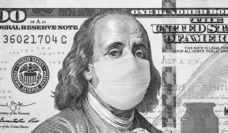When slavery ended nearly two centuries ago, formerly enslaved Black people were ushered into the populace — kind of. The economic system they joined was built against them, stripping them of opportunities to build wealth. Wide socioeconomic gaps between Black and white citizens remain.
A large body of public health research measures the disparities in socioeconomic status and their links to health. Possible solutions are also multiple. One radical economic idea is reparations — or the transfer of resources from the government to Black American residents as delayed payment following chattel slavery. Another is baby bonds, wherein the government would give a bond to every Black child that would accumulate interest until they are given access to these funds as an adult, a proxy for the generational wealth Black children don’t get to inherit.
But these two radical economic ideas remain controversial. In their stead, programs like Affirmative Action have been employed. Affirmative Action laws are rooted in the American belief that education provides accelerated access to more or higher paying jobs which would build wealth in the Black community. This belief itself rests on the age-old American adage that hard work coupled with a better education is the prescription for a better chance in life. But recent research points to a weak effect of education on Black socioeconomic status.
Minority Diminished Returns Theory says factors like racist hiring practices and the lack of high paying jobs in minority communities lessen the power of education to improve socioeconomic status and health for Black residents. If education isn’t a good proxy of socioeconomic status, what is? Economic strain — or the worry that comes with not being able to make ends meet — might be our answer.
Presently and historically, our country is organized so that the hard work symbolized by advanced education is not a viable way to better health for Black, indigenous, and other people of color.
Shervin Assari and team explored the network of socioeconomic factors influencing the health of Black residents age 65 and older living in South Los Angeles. Commissioning nurses and physicians to survey and interview 619 residents, the researchers collected data on years of schooling, depressive symptoms, chronic diseases, sick days, pain intensity, and self-rated health status. They also measured economic strain through a series of questions asking participants if they ever worried how they would pay for basic necessities like food or their mortgage.
The researchers found that economic strain is moderately associated with depressive symptoms, chronic diseases, and pain intensity. It is weakly associated with sick days and self-rated health. Years of education had no impact on these health outcomes. These results fall in line with the Minority Diminished Returns Theory and extend the theory to older adults, a population frequently excluded from research that explores the link between education, socioeconomic status, and health.
Reparations and baby bonds are just two economic plans that could fundamentally restructure Black communities, allowing the promise of education to be fulfilled. But more urgent and culture-shifting work is needed to operationalize some of these strategies following successful legislative efforts.
Presently and historically, our country is organized so that the hard work symbolized by advanced education is not a viable way to better health for Black, indigenous, and other people of color. For many, hard work does not pay off.














